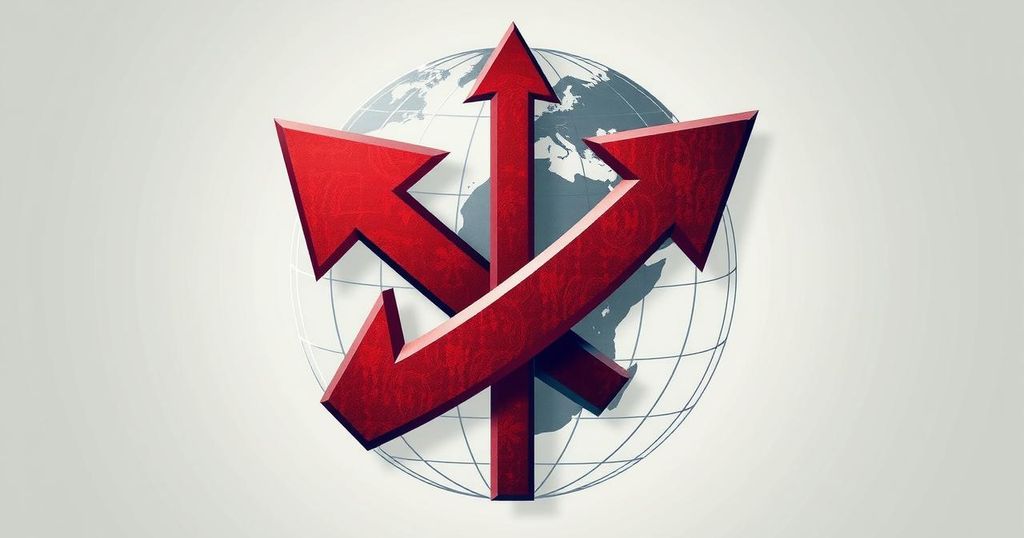Trump’s Tariffs and International Relations: A Review of Current Developments

President Trump intensifies reciprocal tariffs as trade tensions rise, causing concern among NATO allies. The ceasefire in Gaza is precarious amid Trump’s proposals. Robert F. Kennedy Jr. faces scrutiny as he nears confirmation for HHS, while legal challenges against Trump’s policies unfold. President Zelenskyy insists on Ukraine’s inclusion in negotiations, and key allies seek tariff exemptions. Trump’s potential peace talks with Putin are seen as crucial for international stability.
In recent developments, President Donald Trump has intensified his push for reciprocal tariffs amidst escalating trade tensions, coinciding with Indian Prime Minister Narendra Modi’s visit to the White House. NATO allies are increasingly anxious about these changes, notably following statements from U.S. officials that suggest a shift in security dynamics within Europe, potentially leaving the EU to re-evaluate its policies without American support.
The ongoing situation in Gaza has seen the ceasefire between Hamas and Israel gain traction; however, experts caution that it remains at risk due to Trump’s controversial proposals regarding U.S. involvement in Gaza. Hamas has mobilized for global protests against the potential displacement of Palestinians, reflecting heightened tensions in the region.
The confirmation of Robert F. Kennedy Jr. as the Secretary of Health and Human Services has raised concerns due to his history of anti-vaccine activism. Despite criticism, the Republican Party is rallying behind him as he is expected to pass the critical Senate vote, although attention will be focused on Senator Mitch McConnell’s stance regarding vaccination policy.
In the legal arena, the Trump administration faces numerous challenges, including an appeal against the proposed closure of the U.S. Agency for International Development and the ban on transgender military service. Critics argue both policies lack due process and violate constitutional rights, necessitating further judicial scrutiny.
Ukrainian President Volodymyr Zelenskyy has emphasized his country’s involvement in negotiations with Russia, maintaining that Ukraine must be included in any discussions that impact its sovereignty. As Trump pushes for talks with President Putin, Zelenskyy warns against agreements made without Ukrainian consent, asserting the importance of European cooperation in any resolution.
Meanwhile, allies Japan, Australia, and South Korea are actively seeking exemptions from Trump’s newly imposed tariffs on steel and aluminum, reflecting concerns over economic impacts. Economists suggest that tariff negotiations remain a possibility, potentially allowing for adjustments favorable to these nations while securing U.S. interests.
Finally, Trump has expressed optimism about a potential agreement to end the ongoing conflict in Ukraine as negotiations commence. However, European officials caution that any outcomes should inherently involve Ukraine to ensure implementation and legitimacy, underlying the delicate nature of international diplomacy in the current geopolitical landscape.
In summary, President Trump’s recent strategies, from reciprocal tariffs to discussions surrounding tariffs on allies and the complexities of international conflicts, reflect significant shifts in U.S. foreign and domestic policies. The responses from NATO Allies, the situation in Gaza, the confirmation of controversial cabinet appointments, and uncertainty regarding Ukraine’s inclusion in peace talks all underscore the multifaceted challenges confronting the administration. The implications of these actions will shape not only U.S. relations but also the broader geopolitical landscape going forward.
Original Source: www.aljazeera.com







